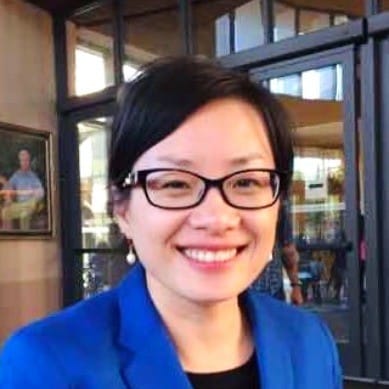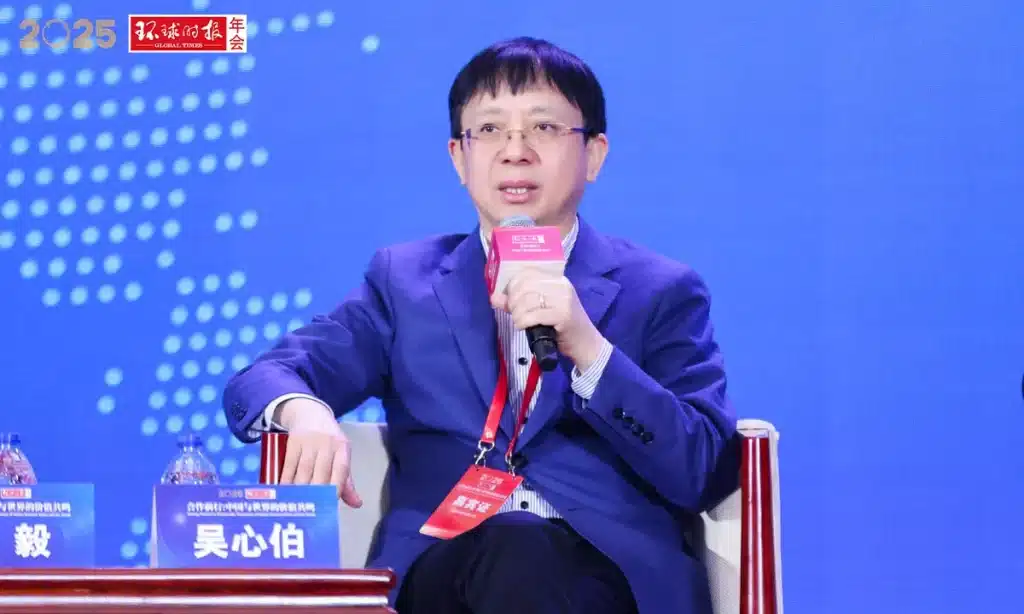Fudan Scholars: Tariff War Gives Way to Global Strategic Battle
- Opinion
 Juan Zhang
Juan Zhang- 06/05/2025
- 0

The U.S.-China competition has entered a new phase characterized by more intense rivalry across a broader range of domains, according to leading Chinese scholar professor Wu Xinbo.
Speaking at a seminar hosted by Fudan University in Shanghai on May 27, Wu—Dean of the Institute of International Studies and Director of the Center for American Studies at Fudan—observed that the initial phase of the U.S.-China rivalry, which had largely focused on trade, has concluded following the recent temporary trade truce negotiated in Geneva.
Earlier this month, China and the United States held high-stakes talks in Geneva, resulting in a breakthrough agreement to significantly reduce tariffs within 90 days. The United States agreed to cutting additional tariffs on Chinese goods from 145% to 30%, while China agreed to lower its retaliatory tariffs from 125% to 10%. The two sides then launched a new round of negotiations aimed at reaching a more comprehensive deal.
During his remarks, Wu said:
The outcome of the first phase of negotiations exceeded many people’s expectations. China has secured a 90-day window that also benefits other economies, showing that it is possible to stand firm when dealing with the United States.
Another expert, professor Song Guoyou, Deputy Director of the Center for American Studies at Fudan University, noted that the first phase of the tariff war had sapped some of the momentum behind the U.S.-China strategic competition. However, he added, “it also allowed both sides to develop a more sober and realistic understanding of each other, thereby reducing the risk of military conflict.”
“A trade war is better than a hot war,” Song concluded.
In his presentation, Wu argued that the Trump administration made several “serious misjudgments” about China’s ’s stance in the trade war at the outset of his second term. These included underestimating China’s economic resilience, lacking tactical preparedness, and struggling to manage confrontations on multiple global fronts.
“The United States initially assumed China was dependent on exports and lacked effective countermeasures,” Wu said. “However, China adopted a more seasoned strategy this time—delaying talks, seeking international support, and ultimately pushing the United States to agree to significant tariff reductions in Geneva.”
Wu also reflected on China’s response during Trump’s first term, acknowledging that China had underestimated the likelihood of a trade war and was ill-prepared when it began. “Our tactics were relatively simplistic—we didn’t use rare earths or market access as leverage,” he said. “We rushed into negotiations, thinking we could quickly end the trade war, which played right into Trump’s hands.”
In the current second phase, Wu predicted that the scope of competition will expand significantly. He noted increasing efforts by both countries to win over third-party support in regions such as Latin America, Southeast Asia, Europe, and the Middle East. For example, China recently hosted a summit with the Community of Latin American and Caribbean States (CELAC), a bloc comprising 33 countries. In contrast, Trump conducted a high-profile tour of three Middle Eastern countries, resulting in a flurry of deals.
Furthermore, Wu noted that technological rivalry—particularly in the semiconductor sector—will intensify. A recent action by the U.S. Commerce Department underscores this trend. The Department has expanded its export controls to block the global use of Huawei’s Ascend AI chips.
The new regulation, which took effect on May 15, 2025, prohibits any individual or company—regardless of location—from using, transferring, or developing technology related to these chips. Analysts view the move as a significant escalation in U.S. efforts to contain China’s tech sector.
Wu further predicted that “future competition will cover a broader range of issues than in the first phase, including China’s services sector, the renminbi exchange rate, and U.S. tech restrictions”. As tariffs prove less effective, he warned, the United States may resort to diplomatic pressure, security alliances, and the “Taiwan card” to extract concessions from China.
Professor Song Guoyou added that Trump’s tariff policy should be seen as an intense diplomatic tool. “The trade war is essentially a controlled release of bilateral tensions,” he explained. He argued that Trump’s approach is not entirely new but echoes past U.S. traditions in high tariffs, aimed at addressing federal debt, reshoring manufacturing, and strengthening the country’s strategic posture.
Still, Song acknowledged that “the trade war will ultimately produce winners and losers”. If China manages to counter U.S. pressure and gain economic advantages, or if the U.S. succeeds in resolving domestic challenges and bolstering its competitive position, “Either outcome will significantly influence the trajectory of future U.S.-China rivalry,” said Song.
At the Fundan conference, it is increasingly clear to Chinese scholars that the tariff-driven confrontation has evolved into a broader, high-stakes strategic contest. The second phase will likely have far-reaching implications for global political and economic stability.
Juan Zhang is a senior writer for the U.S.-China Perception Monitor and managing editor for 中美印象 (The Monitor’s Chinese language publication).
The views expressed in this article represent those of the author(s) and not those of The Carter Center.
Author
-

Juan Zhang is a senior writer for the U.S.-China Perception Monitor and managing editor for 中美印象 (The Monitor’s Chinese language publication).







